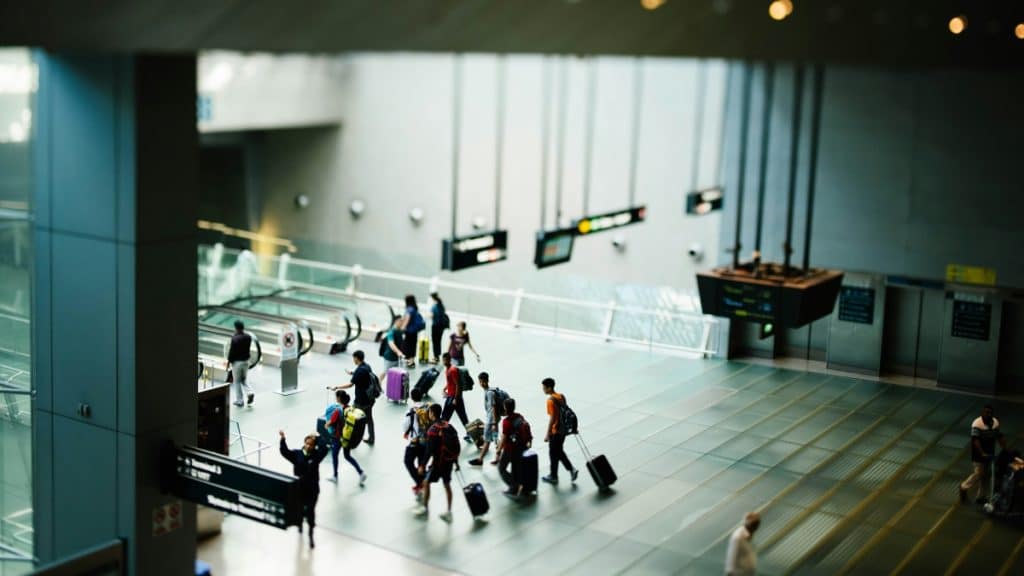The travel industry is in a constant state of transformation, driven by shifting consumer demand, technological capabilities, and seasonal changes. These changes impact numerous sectors and real estate markets, particularly high-tourism destinations like the UAE/Dubai.
This post explores some of the biggest travel and hospitality trends in 2025-2026.
Future of Hospitality Real Estate
The hospitality real estate sector is adapting to the changing needs of a new generation of travelers. Flexible accommodations, personalization, and technology integration are at the heart of this transformation.
Firstly, agencies are converting traditional venues into multi-purpose spaces—for instance, repurposing conference halls. Thus, they cater to the growing number of remote workers seeking a home-like experience while exploring new locations.
Hospitality providers such as restaurants and hotels also use machine learning algorithms and advanced data analytics tools to offer curated suggestions such as dining options, customized room settings, and more. As the demand for personalized experiences grows, these measures enhance customer satisfaction and boost brand loyalty.
Finally, this evolving travel market presents exciting investment opportunities for investors. The demand for sustainable and immersive hospitality solutions drives growth in markets such as the UAE, where off-plan Dubai properties are proving lucrative based on tourist demand. By capitalizing on these trends and future predictions, you can position yourself for long-term gains in this rapidly evolving industry.
Technology’s Influence on Travel
Technology is creating endless opportunities in the travel industry.
Picture this: you video call a virtual tour operator to book your Christmas getaway in Quebec. A generative AI chatbot recommends an ideal travel plan and itinerary after learning your preferences. Before leaving home, you check in online and scan your luggage’s QR code.
This interaction requires minimal human involvement. Yet it flows smoothly because the underlying technologies ease typical tourists’ challenges like queues, baggage handling, misinformation, or misunderstandings.
Thanks to chatbots and generative AI advancements, travelers may chat with providers whenever they need assistance. Airlines, resorts, and various travel agencies use these models to deliver tailored recommendations, activities, dining options, etc. But there is more — companies like BTG Homeinns also use hotel robotics to deliver exceptional room service, control costs, and safeguard tourists’ living quarters.
Augmented reality (AR) and virtual reality (VR) are also gaining traction. VR provides virtual tours of landmarks, hotels, and attractions before booking, helping them make informed decisions. Meanwhile, AR brings printed and digital itineraries to life by providing interactive travel guides and historical overlays.
Looking ahead, the metaverse is another technological trend with the potential to revolutionize travel. Virtual destinations allow travelers to explore attractions digitally, enhancing provider’s marketing campaigns. By monetizing virtual destinations, travel providers and hospitality agencies can develop new income streams.
Sustainability and Responsible Tourism
Global warming is worsening, and the travel sector contributes about 8% of total carbon emissions.
Compared to 100 or 200 years ago, more people today are enlightened about eco-conscious travel and determined to make sustainable travel choices. More so, today’s travelers expect their journeys to positively impact the destinations they visit, and the numbers reveal it. More than 70% of respondents want to travel sustainably. Consequently, tourism agencies must adopt responsible practices that help preserve natural ecosystems and landmarks while supporting local communities. These practices include:
- Partnering with certified vendors and transport services.
- Promoting cultural activities to benefit local communities.
- Embracing off-peak periods to mitigate the harm of over-tourism.
The Changing Traveler
Today’s travelers are redefining the tourism norms, with two prominent trends — digital nomadism and bleisure. Since the start of the pandemic, these lifestyles have become even more widespread, triggering more demand for flexible accommodations and work-friendly spaces.
In response, the hospitality industry is adopting certain measures to cater to these digital nomads: tailored packages featuring high-speed internet, international banking, work-friendly accommodations, medical care, and opportunities for local cultural immersion.
Moreover, agencies might attract nomadic workers by offering co-working spaces in popular destinations. A real-world example is Aruba’s “One Happy Workation” program, which opens its beaches to US workers for up to 90 days without requiring government documentation.
Bleisure travel, on the other hand, combines business tasks with leisure, reflecting a growing trend of blending professional and personal experiences. As more digital nomads seek to integrate leisure into their trips, demand for experiences catering to both needs rises. Hospitality providers are adapting by:
- Offering flexible venues that can double as workspaces or recreational centers.
- Creating tailored local experiences to simplify the selection process for busy professionals.
- Investing in travel robotics to enhance convenience for travelers.
Embrace the Future of Travel
The future of travel is marked by personalized hospitality services, technological advancements, sustainability, and digital nomadism. As these trends continue to evolve, one thing is guaranteed — the agencies that adapt and innovate will thrive in this new marketplace.
